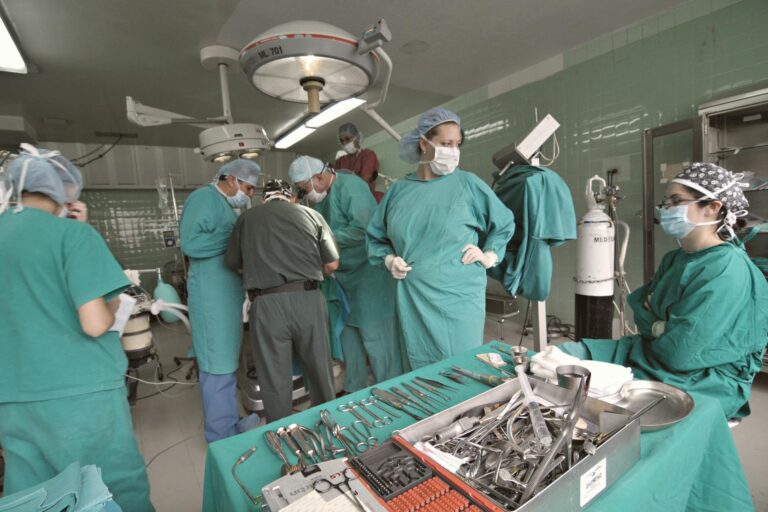Dementia is a debilitating condition that affects millions of people worldwide. It is characterized by a decline in cognitive function, including memory loss, impaired thinking, and changes in behavior. With the aging population on the rise, finding ways to prevent and treat dementia has become a critical concern.
In recent years, scientists have been exploring the connection between the gut and the brain, known as the gut-brain axis. This communication network between the gastrointestinal tract and the central nervous system has been linked to various health conditions, including mental health disorders like depression and anxiety. And now, a new theory has emerged proposing a potential link between the gut-brain axis and dementia.
The gut-brain axis is a complex system that involves bidirectional communication between the gut and the brain. It relies on a network of nerves, hormones, and immune cells to send signals back and forth. This communication is essential for maintaining a healthy balance in the body and plays a crucial role in regulating various bodily functions.
One of the key players in this axis is the gut microbiome. This is the community of microorganisms that reside in our gut, primarily composed of bacteria, but also including viruses, fungi, and protozoa. These microbes play a vital role in regulating our immune system, digesting food, and producing essential nutrients.
Recent studies have shown that changes in the gut microbiome can impact brain function and behavior. This is because the microbes in our gut produce neurotransmitters, such as serotonin and dopamine, which are critical for regulating mood and cognitive function. They also produce short-chain fatty acids that have been linked to neuroprotection and improved cognitive function.
So how does this relate to dementia? According to the new theory, changes in the gut microbiome could contribute to the development and progression of dementia. Researchers believe that an imbalance in the gut microbiome, known as dysbiosis, can lead to inflammation in the gut and trigger a cascade of events that ultimately affect brain function.
Studies have shown that people with dementia have a different composition of gut bacteria compared to healthy individuals. They also have higher levels of inflammation in the gut, which can lead to a leaky gut. This condition occurs when the integrity of the gut lining is compromised, allowing harmful substances to pass through and enter the bloodstream. This can trigger an immune response, leading to systemic inflammation and potentially impacting brain function.
Moreover, the gut microbiome is responsible for producing amyloid beta, a protein that forms the toxic plaques found in the brains of people with Alzheimer’s disease. Researchers believe that dysbiosis in the gut can lead to an overproduction of amyloid beta, contributing to the buildup of these plaques and ultimately leading to cognitive decline.
While this new theory is still in its early stages, there is growing evidence to support the link between the gut-brain axis and dementia. This has opened up new avenues for potential treatments and prevention strategies for this debilitating condition.
One potential treatment is through diet and lifestyle modifications. Research has shown that a diet high in fiber, fruits, vegetables, and healthy fats can promote the growth of beneficial gut bacteria and reduce inflammation in the gut. Exercise has also been linked to improved gut microbiome diversity and can potentially have a positive impact on brain function.
Another potential treatment avenue is through probiotics and prebiotics. Probiotics are live beneficial bacteria that can help restore balance in the gut microbiome. Prebiotics, on the other hand, are non-digestible fibers that act as food for these beneficial bacteria. By incorporating probiotic-rich foods like yogurt, kefir, and sauerkraut into your diet and consuming prebiotic-rich foods like garlic, onions, and bananas, you may be able to improve your gut health and potentially reduce your risk of developing dementia.
In addition to these lifestyle interventions, researchers are also exploring the use of fecal microbiota transplantation (FMT) as a potential treatment for dementia. FMT involves transplanting fecal matter from a healthy donor into the gut of an individual with dysbiosis. This is done to introduce a healthy balance of bacteria into the gut, potentially improving brain function.
While these treatments are still in the early stages of research, they hold promise for the future of dementia prevention and treatment. By targeting the gut-brain axis and improving gut health, we may be able to slow down or even reverse the progression of dementia.
In conclusion, the new theory proposing a link between the gut-brain axis and dementia is a significant development in our understanding of this condition. While more research is needed to fully understand the connection, it has opened up potential new avenues for treatments and prevention strategies. By focusing on maintaining a healthy gut microbiome, we may be able to improve brain function and potentially reduce the prevalence of dementia in our aging population. As with any medical condition, it is always essential to consult with a medical professional before making any significant lifestyle changes or starting a new treatment.





